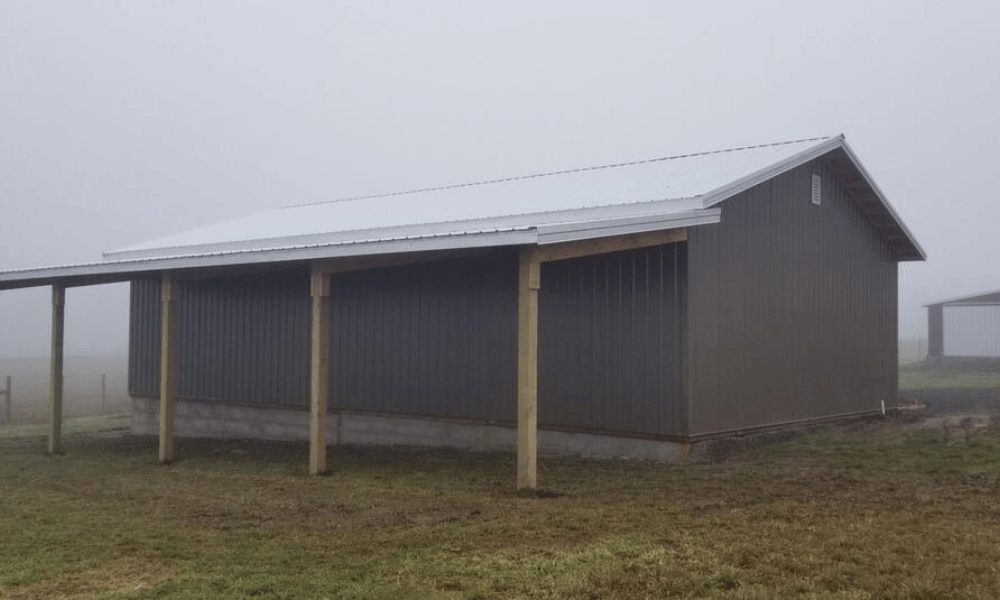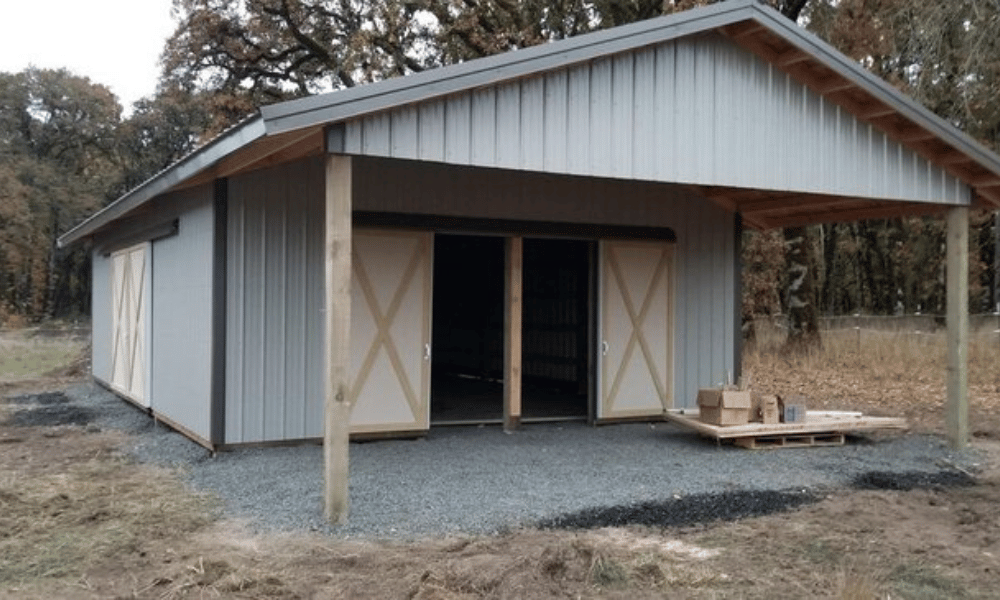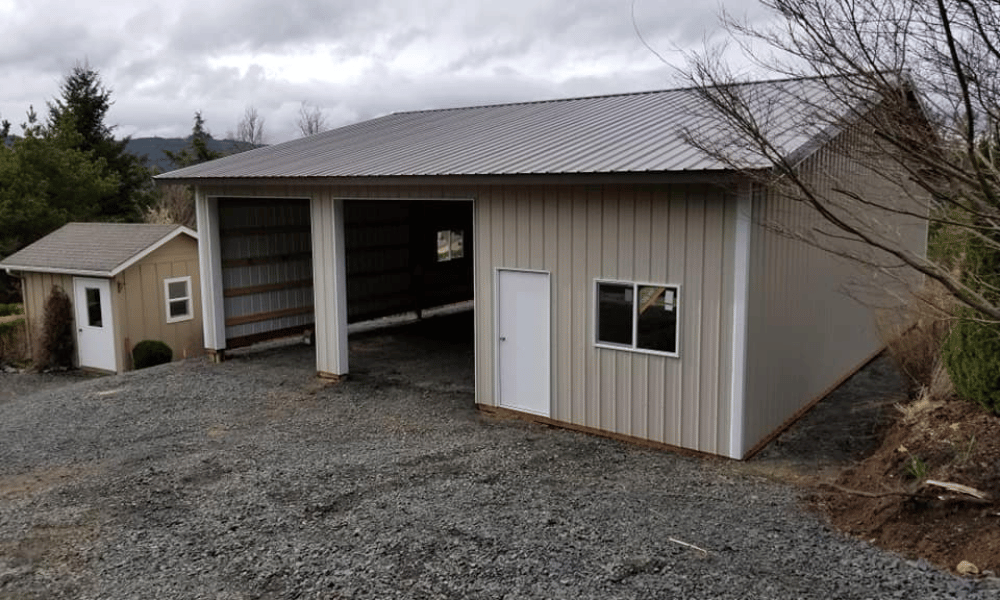Introduction
When it comes to construction, the materials you choose can make or break your project. Investing wisely in quality construction materials not only ensures the durability and longevity of your structure but also enhances its aesthetic appeal and functionality. Whether you're building a cozy home, a robust pole barn garage, or any other structure, understanding the significance of quality materials is paramount.

In this article, we’ll explore various aspects of investing in construction materials that stand the test of time. From the types of materials available to tips for smart purchasing decisions, we’ll cover everything you need to know to make informed choices for your next building project.
Investing Wisely In Quality Construction Materials For Longevity
The Importance of Quality Construction Materials
Quality construction materials are essential for a multitude of reasons:
Durability: High-quality materials withstand harsh weather conditions and resist wear and tear. Safety: The structural integrity provided by superior materials minimizes risks associated with building failure. Cost-Effectiveness: While quality materials may come with a higher upfront cost, they often save money in the long run through reduced maintenance and repair needs. Aesthetic Appeal: Well-crafted materials enhance the overall beauty and value of the property.Choosing superior construction materials ensures longevity and peace of mind knowing your investment is secure.
Types of Quality Construction Materials
Wood: A Traditional Choice
Wood has been a staple in construction for centuries. It's versatile, aesthetically pleasing, and can be used for various applications:
- Lumber: Ideal for framing structures, particularly in residential projects. Plywood: Used for flooring, walls, and roofing. Engineered Wood Products: Such as laminated veneer lumber (LVL) offer enhanced strength.
Pros:
- Renewable resource Excellent insulation properties
Cons:
- Susceptible to pests if untreated Requires maintenance to prevent rot
Steel: The Backbone of Modern Construction
Steel is known for its incredible strength-to-weight ratio and durability:
- Structural Steel: Used in commercial buildings and large structures. Steel Framing: An excellent alternative to wood framing.
Pros:
- Fire-resistant Low maintenance
Cons:
- Higher initial cost compared to wood Vulnerable to corrosion if not properly treated
Concrete: The Heavyweight Champion
Concrete is often regarded as one of the most durable construction materials available:
- Precast Concrete Panels: Useful for quick installation in commercial projects. Reinforced Concrete: Enhances strength by incorporating steel rebar.
Pros:
- Extremely long-lasting Fireproof properties
Cons:
- Can crack under extreme temperatures Requires proper curing time
Investing Wisely In Quality Construction Materials For Longevity – Key Considerations
When investing in construction materials, consider these key factors:

Sourcing Quality Construction Materials
Understanding Local Suppliers vs. Online Marketplaces
Where you buy your materials matters significantly:
Local Suppliers:- Pros: Ability to inspect products before purchase; better knowledge about regional needs. Cons: Limited variety depending on location.
- Pros: Access to a wider range of products; often competitive pricing. Cons: Shipping costs; inability to physically assess quality until delivery.
Building Codes and Regulations
Before commencing any construction project, familiarize yourself with local building codes:
Ensure that all chosen materials meet required safety standards. Consult with professionals who understand local laws regarding construction practices.FAQ Section
1. What are some examples of high-quality construction materials?
High-quality construction materials include treated lumber, structural steel, reinforced concrete, high-grade insulation products, and durable roofing shingles.
2. How can I ensure I’m buying quality materials?
Research suppliers thoroughly; ask for certifications; read customer reviews; check physical samples whenever possible.
3. Is it worth investing in eco-friendly building materials?
Absolutely! Eco-friendly building materials enhance sustainability while often providing long-term savings on energy costs due to their efficiency.
4. How does weather affect material choice?
Materials like wood may warp or rot in wet climates unless treated properly, while steel may rust without appropriate coatings against moisture exposure.
5. Are there benefits to using recycled construction materials?
Yes! Recycled materials often reduce environmental impact while providing unique aesthetics and potentially lower costs compared to new options.

6. Can I find quality construction supplies online?
Yes! Many reputable online marketplaces offer high-quality supplies, but always check reviews and supplier ratings before making purchases.
Conclusion
Investing wisely in quality construction materials is crucial for ensuring longevity and functionality across all types of structures—from cozy homes to impressive pole barn garages. By understanding different material types, sourcing from reliable Pole Barn suppliers, considering local building codes, and assessing your unique needs based on climate and usage requirements, you'll be well on your way toward making informed decisions that will bolster the durability of your projects for years to come.
Remember that spending a little more upfront can lead to substantial savings down the line—both financially through reduced maintenance costs and emotionally through increased satisfaction with your completed project’s aesthetics and performance!
By following these guidelines on "Investing Wisely In Quality Construction Materials For Longevity," you’ll not only create durable structures but also contribute positively towards sustainable practices within the industry!